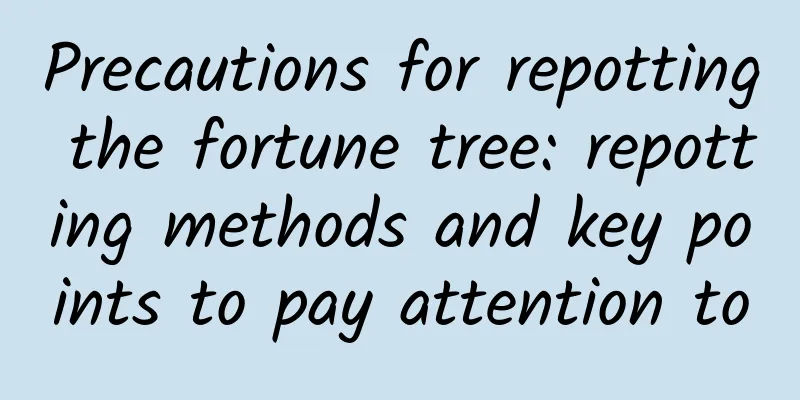How to germinate pumpkin seeds?

|
Pumpkin is loved by farmers for its high yield, easy preservation and rich nutrition. However, it is not easy to grow high-yield pumpkins. It requires mastering some planting techniques. So how do you germinate pumpkin seeds ? Let’s take a look below. 1. Method of germinating pumpkin seeds 1. Soaking method: Soak the pumpkin seeds in clean water for about 12 hours, then take them out and place them in a cool and ventilated place to dry for a while before sowing. 2. Wet towel method: Place pumpkin seeds in a wet towel, wrap the towel, and place it in a warm place. They will germinate in about 2-3 days. 3. Germination tray method: Place pumpkin seeds in a germination tray, add a certain amount of water, place it in a warm place, and sow them after germination. 2. Precautions for sowing pumpkin seeds 1. Sowing time: Pumpkin seeds are suitable for sowing in spring or autumn. Spring sowing can be from the end of March to mid-April, and autumn sowing can be from the end of August to mid-September. 2. Sowing location: Pumpkin prefers a warm, humid, fertile and ventilated environment, so the sowing location should be chosen in a place with plenty of sunlight and good drainage. 3. Sowing depth: When sowing pumpkin seeds, generally bury the seeds 2-3 times the depth in the soil. If the soil is too dry, you can water it before sowing. 4. Sowing spacing: When sowing pumpkin seeds, the seed spacing is generally 1-2 meters. This ensures that the pumpkins have enough space to grow and will not squeeze each other. 3. How can we produce more pumpkins? 1. Fertilization should be reasonable: whether using base fertilizer or topdressing, it is necessary to maintain nutritional balance and a reasonable combination of nitrogen, phosphorus and potassium. The leaves of the plant should be supplemented with phosphorus, potassium and boron fertilizers in time before flowering to improve the quality of flowering. 2. Reasonable pruning and branching: Pumpkin pruning needs to be determined according to different varieties and growth trends. If the main vine bears fruits, some thin vines can be removed and a few strong vines can be retained. If the main vine grows to about 2 meters and still does not bear fruits, the top of the main vine should be removed and the branch vines should be retained to bear fruits. 3. Auxiliary pollination: You can use artificial assisted pollination or spray with Zenggualing to increase the fruit setting rate. Artificial pollination needs to be carried out on a sunny day before 9 am. Pick off the male flowers, cover the flower cores on the female flowers, and remove them the next day. Or you can just aim the core of the male flower at the core of the female flower and apply it a few times. 4. Replenish nutrients in time: The growing period of pumpkin is relatively long. In addition to using base fertilizer during planting, fertilizer should be supplemented in time after the pumpkin is formed. Fertilizer can be decomposed organic fertilizer or balanced fertilizer, and phosphorus, potassium and boron fertilizer should be supplemented on the leaves to promote continuous flowering and fruiting. That’s it |
<<: How to take care of newly bought hydrangeas
>>: How to make orchids sprout more and what fertilizer to use
Recommend
The reason why the trunk of the fortune tree becomes soft, can it be saved?
1. No nutrients are replenished for a long time W...
How to plant peony seedlings? How much does a peony seedling cost?
1. Planting method 1. Time: The best time to plan...
How to water the succulent plant Pinus serrata
Principles of watering pine Ball pine is a plant ...
How many pounds does kohlrabi produce per mu?
Kohlrabi yield per mu Kohlrabi is also called wil...
What is the best month to plant sweet potatoes?
When to plant sweet potato flowers Sweet potato f...
Poke a hole in an oil drum and it will become a small vegetable garden in 10 days, so you don’t have to spend money on vegetables for a year!
Plant some garlic in an oil barrel and it will gr...
Geranium cutting method and time How to make geranium cutting have a high survival rate
Geraniums are adaptable to a wide range of enviro...
Can roses be planted in pots?
Can roses be planted in pots? Roses can be plante...
Field management of water spinach
Water spinach is widely grown throughout China, e...
Hydroponic method of Brazilian iron
Hydroponic techniques of Brazilian iron 1. Cut a ...
Ivy cultivation methods and precautions
1. Maintenance methods 1. Temperature: The temper...
How to plant and care for lilies
Lilies are famous for their diverse colors, and m...
How to plant Clematis in a small pot
Root characteristics When choosing a small pot fo...
Do Kyoho grapes prefer shade or sun?
Do Kyoho grapes prefer shade or sun? Kyoho grapes...
The role and efficacy of rubber tree
1. Watch This plant grows in a small pot, but it ...









